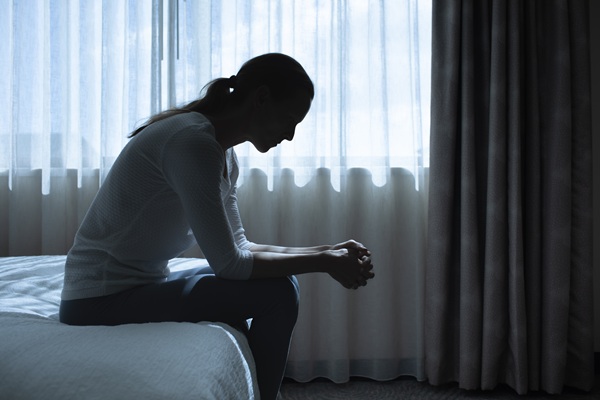TMS Is a Noninvasive Psychiatric Depression Therapy

Psychiatrists prefer noninvasive psychiatric treatments for depression. TMS stands for transcranial magnetic stimulation. It is a treatment for patients who do not respond to traditional methods. Sometimes, the non-intrusive techniques work better. Here are the details about this noninvasive psychiatric treatment.
How TMS works
Some patients with depression cannot find relief in traditional antidepressants or psychotherapy. These patients are suffering from treatment-resistant depression. Patients who have received this noninvasive psychiatric treatment had dramatic improvements. They also had complete remission from depression. TMS is an outpatient treatment. It does not have intense side effects at all.
The FDA-approved TMS back in 2008. This noninvasive psychiatric procedure uses a metal coil. This coil then produces magnetic fields capable of depolarizing the neurons in the brain. The magnetic field is like that of magnetic resonance imaging.
TMS stimulates the mood-regulating regions of the brain. Its effects are like that of ECT (electroconvulsive therapy). A high level of stimulation can excite the neurons. A depressed brain has low cerebral blood flow. High-frequency TMS can increase it.
rTMS (repetitive transcranial magnetic stimulation)
This type of TMS can treat anxiety and depression. Psychiatrists have been using it for at least 20 years already. The session lasts for about 40 minutes. This painless, noninvasive psychiatric procedure does not need anesthesia or sedation. The patient will be awake. The patient will be capable of driving to the clinic and back home without any issue at all.
There will be a hand-sized electromagnetic coil. The doctor will hold this against the front region of the scalp. This is the area of depression and mood regulation. Brief electromagnetic impulses pass through the metal coil. They produce small electric currents. This results in the excitement of the nerve cells in the targeted area.
Psychiatrists can use rTMS as a stand-alone procedure. Combining it with antidepressant therapy is also possible. TBS (theta burst stimulation) is a new form of rTMS. This gives short bursts of high-frequency stimulation. There will be five quick applications per second. TBS tends to copy the natural rhythm of brain activity.
dTMS (deep transcranial magnetic stimulation)
This type of TMS excites the deeper and larger regions of the brain. The metal H coils reach four centimeters deep under the skull’s surface. These coils can target different areas of the brain. The FDA approved dTMS for treatment-resistant depression.
A dTMS session will involve a cushioned helmet. The patient will wear this during the session. This helmet will produce short magnetic fields. This is also an outpatient procedure. It does not need anesthesia or sedation.
This noninvasive psychiatric treatment also has a few side effects. A session lasts for 20 minutes every day. The treatment series will last for six weeks. Patients can go back to normal activities after each session.
The benefits
TMS is a more effective alternative to traditional depression treatments. They may not be enough to improve the patient’s severe depression anymore. Failure in traditional treatments will prompt the doctor to start the TMS treatment. Patients tend to improve using this noninvasive psychiatric treatment. Studies show that most people improve by 50 percent after TMS. Complete remission of depressive symptoms can happen over time.
This noninvasive psychiatric treatment has few side effects. Nausea, weight gain, and sexual dysfunction are common negative effects. These often go away in a week. TMS can also help with other issues. Stroke and migraines are a few of the other conditions this treatment can relieve. It can also relieve anxiety, Parkinson’s disease, and Alzheimer’s disease.
TMS is a healthier approach to treating depression than ECT (electroconvulsive therapy). The latter uses electric currents to stimulate the brain. The patient receives an anesthetic before this treatment. ECT also has side effects like memory loss and convulsions. TMS does not need anesthesia at all. It is a painless procedure.
The patient will not suffer from the side effects of the anesthetics at all. A patient can drive home alone and return to normal activities after the TMS treatment. This is an advantage for busy people. It is also a good break for patients who have been unsuccessful with medications and therapy.
TMS is a noninvasive psychiatric treatment for treatment-resistant depressive patients
Patients with a major depressive disorder receive the standard treatment. This involves taking antidepressants. These medications often come with psychotherapy. Some patients get better from these treatments, while others do not. Your psychiatrist can determine which of the two TMS treatments you should receive. You can have a life free of depression after this treatment.
Get more information about Future Psych Solutions in Columbia at https://futurepsychsolutions.com.
Check out what others are saying about our services on Yelp: Noninvasive Psychiatric in Columbia, SC.
Related Posts
Post-traumatic stress disorder PTSD treatment continues to evolve, especially for individuals who do not find enough relief with traditional talk therapy or standard medications alone. PTSD affects the brain's stress circuits, mood regulation, and sleep, which can make daily life feel overwhelming. Modern interventional psychiatry focuses on advanced therapies that help the brain reset and…
Depression can be difficult to manage, particularly for those who do not respond to traditional antidepressants and other methods. In these cases, spravato for depression offers a new and effective psychiatric treatment option. This FDA-approved medication, also known as esketamine, is administered as a nasal spray under medical supervision. It has shown remarkable results for…
Treatment-resistant depression can leave patients feeling stuck, even after exploring different medications and approaches to therapy. The good news is that TMS therapy, or transcranial magnetic stimulation, offers a new way forward. This innovative and noninvasive psychiatric treatment aims to restore healthy communication between brain regions responsible for mood, emotion, and focus, providing a path…
Ketamine therapy is an effective treatment method for treatment-resistant mental conditions, such as depression, anxiety disorders, and post-traumatic stress disorder (PTSD). However, common misconceptions may prevent individuals from choosing this treatment and obtaining the relief they need. Our team is here to dispel the three most common myths surrounding ketamine therapy so you can make an…


